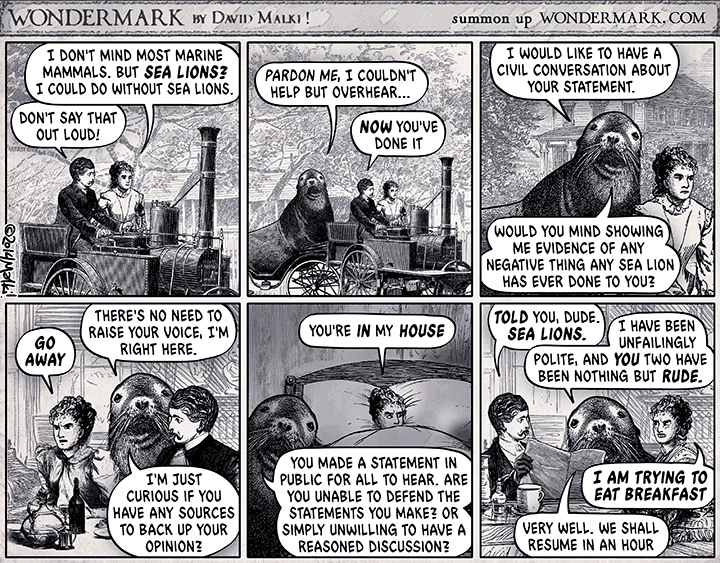

Careful you don’t come off as a sealion.

Though this is a thread about Wayland so eh.


Careful you don’t come off as a sealion.

Though this is a thread about Wayland so eh.


Thanks, you made me feel old today. Get off my lawn.


I’ve watched some slow typists program, and I think I have the answer. If it takes you a while to type the code out, you are much more likely to stick to the first approach that works, and not rewrite it as much.


My dad said that a lot


You remember that orange soap you put in dry hands, and only after lathering wash with water? My hands never felt cleaner than after autoship class.


The way I think about this is somewhat novel I think.
Suppose we have two universes, everything the same, except one has free will and one doesn’t. Would an observer be able to tell them apart? I don’t think so. Maybe I just lack imagination, but I don’t see how free will would actually make a difference.
Your decisions determine what kind of person you are and what kind of person you are determines what decisions you make. They are self reinforcing and tied up together in a big path dependant knot.
Wanting to be a better person also only works if you let it change your decisions, bringing you one step closer to being a better person.


Also check out the book “seeing like a state” if you want a whole book version of that quote, including examples in forestry, city design and education.


There’s also the chemistry version. If you are not part of the solution, at least you precipitated.
Have you looked at the Lisps / Scheme / Racket yet? Racket in particular makes it quite nice to go
#lang blahat the top of the file and change the parsing or interpretation entirely.For example all the documentation pages and guides are written in scribble:
https://docs.racket-lang.org/scribble/getting-started.html#(part._first-example)
#lang scribble/base @title{On the Cookie-Eating Habits of Mice} If you give a mouse a cookie, he's going to ask for a glass of milk.And it has an entire document markup language created in it, which can output pdf or html. But you can still use @ syntax to drop in racket code to compute values. Or create templates.
I even implemented a #lang which took assembly directly (and interpreted it, it was for a class).
So if you are really after full control, you should study Lisps and their macro systems.